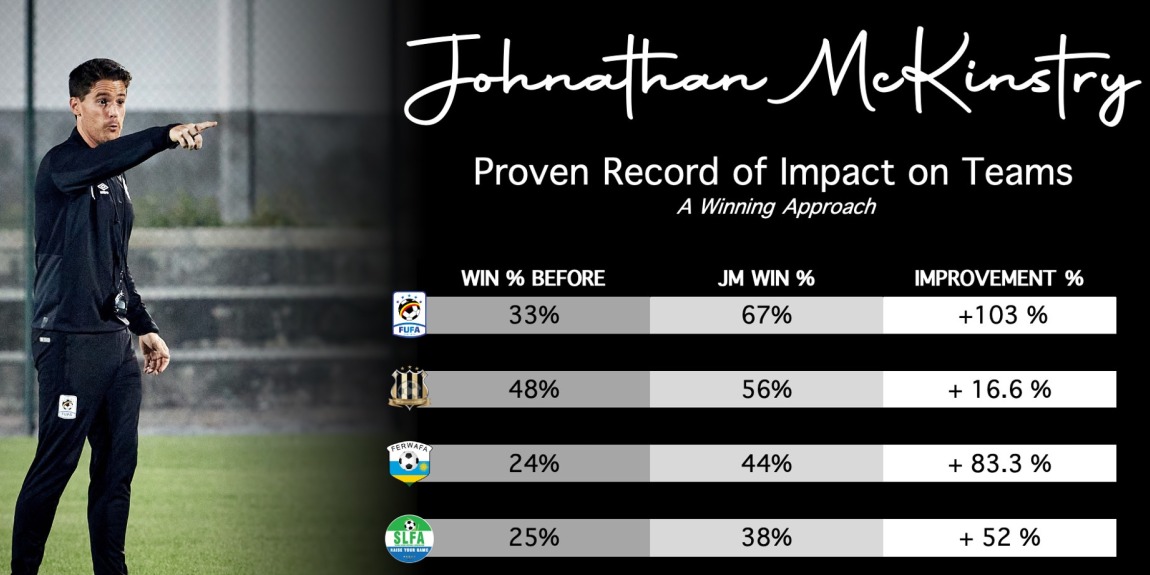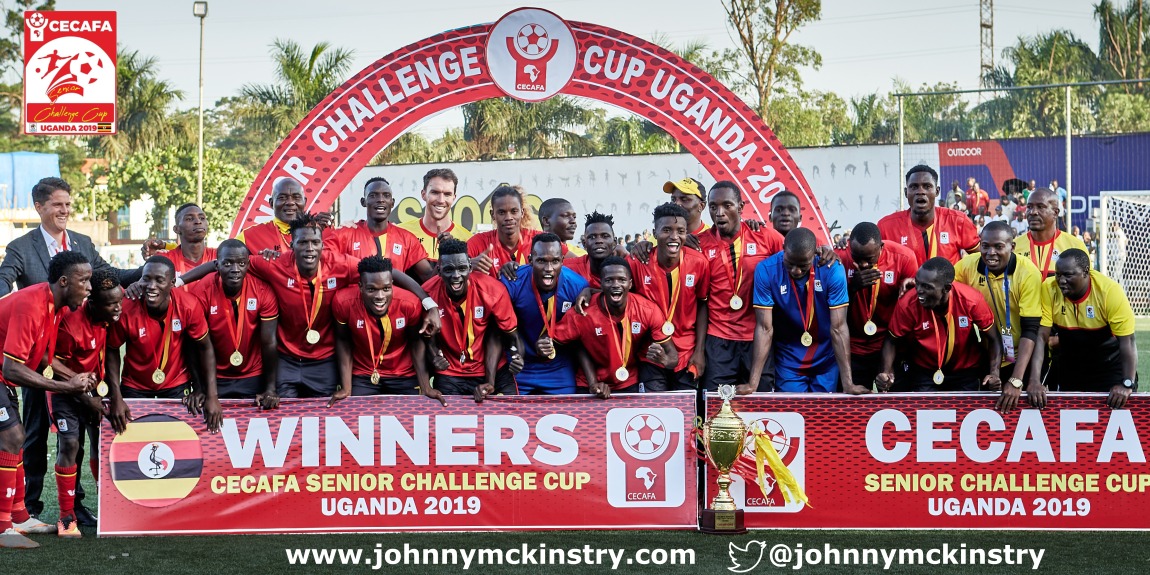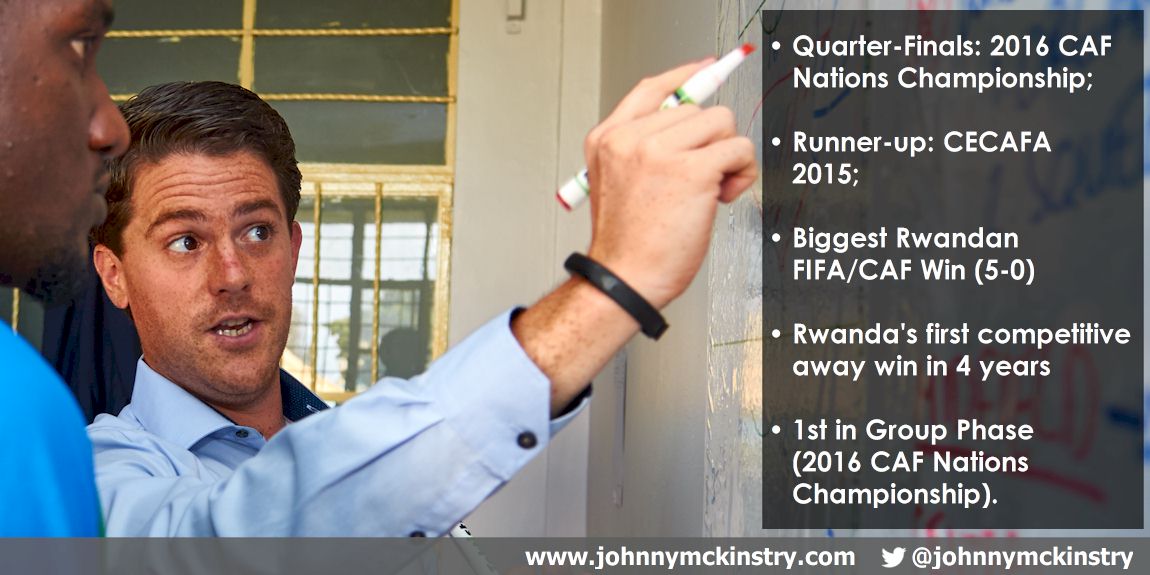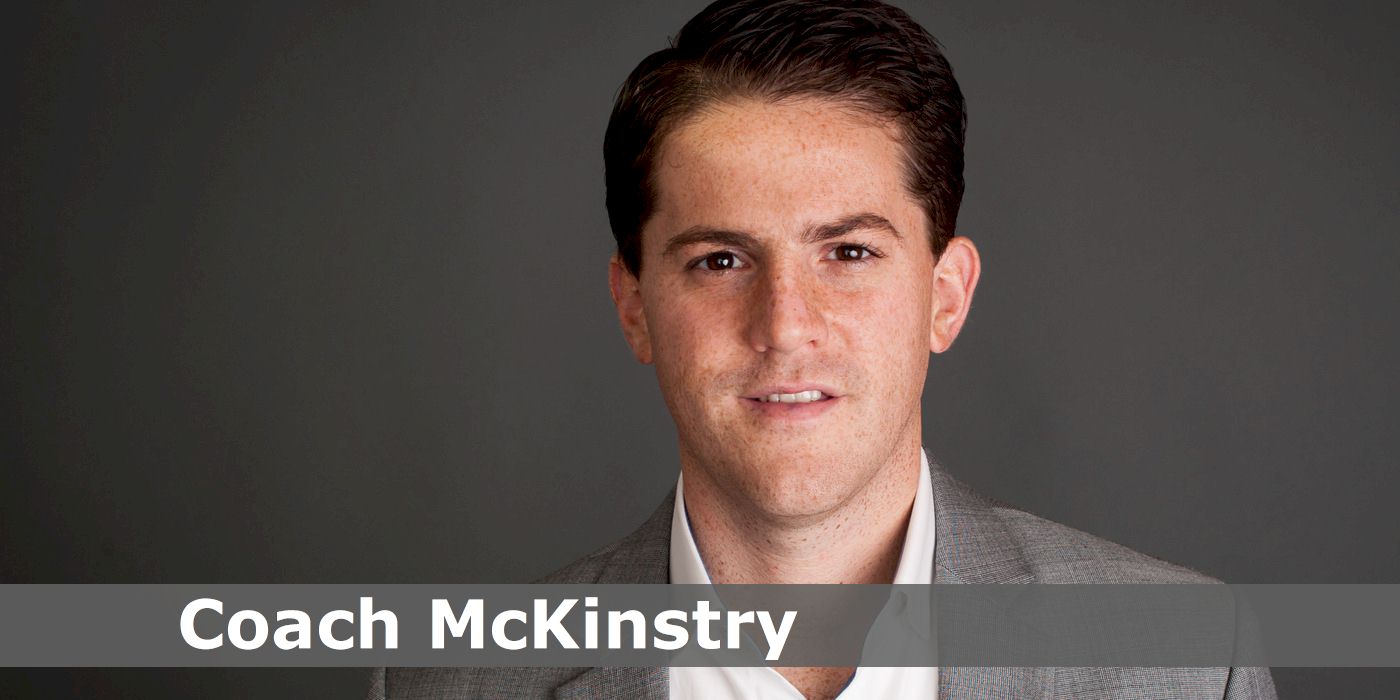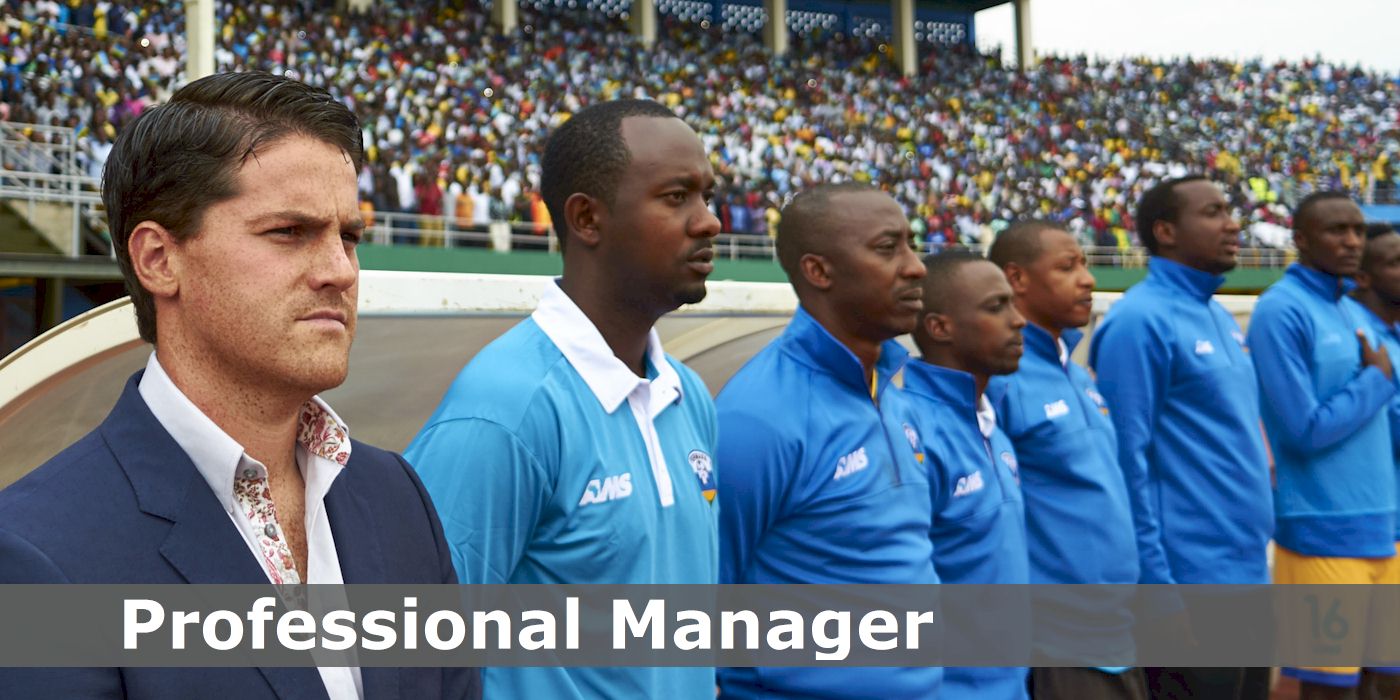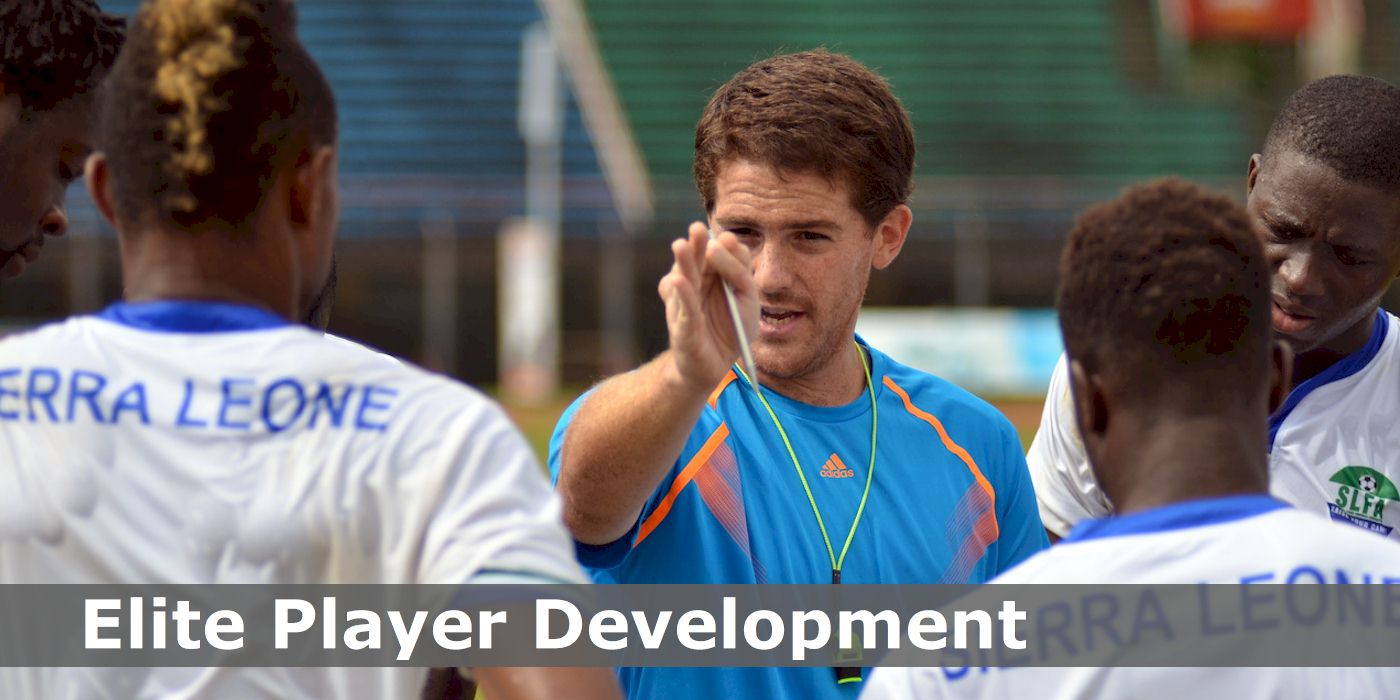Johnny McKinstry could be doing it a more straightforward way...
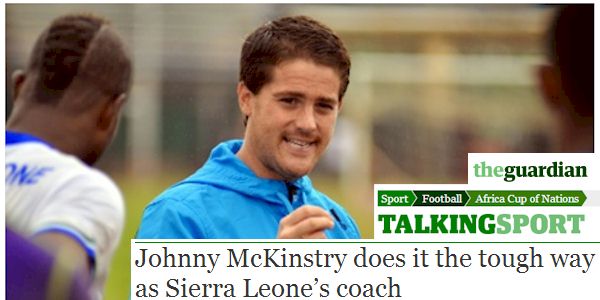
Nick Ames reports for The Guardian (Friday 5 September 2014 12.00 BST)
Johnny McKinstry could be doing it a more straightforward way. He could still be where he had expected to be: in the United States, scaling the ladder from working with New York Red Bulls’ Academy. Perhaps some kind of role around a senior team would have come up by now and, even if not, a coach in his twenties should not need to fixate upon the sands of time too attentively.
But McKinstry, 29, is nearly five years out of New York and on Saturday he will cajole from the touchline as his Sierra Leone team face Ivory Coast in Abidjan. A positive result would set them off and running in a fiendish Africa Cup of Nations qualifying group that also includes Cameroon and the Democratic Republic of the Congo.
That is not the extent of the challenge: Ivory Coast’s government agreed to host the game on Tuesday, fears over the spread of the Ebola crisis in Sierra Leone having severely compromised their preparations. Organised football games are banned in Sierra Leone as efforts to contain the virus continue, and it is unlikely they will host any of their three home fixtures. For a young Northern Irish coach whose own journey has been notable enough, there is unimaginable extra significance in representing the country.
“One of the things I’ve said to the players, and we’re all in complete agreement, is that we will be – not just want to be, will be – the good news story for Sierra Leone,” he says.
“What’s happening is a nightmare. I’ve seen so much development in my four and a half years here, so much good work in improving the infrastructure, so much progress, and now the whole country is taking a hit.
“But we’ve committed to bringing something positive, and there’s no doubt that the national team’s success can have a direct impact on the psyche. If we can take Sierra Leone to the Africa Cup of Nations, then hopefully people will see the positives in the country again and, once the situation has been taken hold of, we can help attract them back here.”
McKinstry, from Lisburn, arrived in 2010 to work at the Craig Bellamy Foundation, an academy set up by the now-retired Welshman within a few hundred metres of the Freetown Peninsula’s extraordinary beaches. Those sands are layered above, but can never completely mask, the scars of the brutal civil war of the 1990s. Football continues to play its part in Sierra Leone’s rehabilitation and McKinstry – still the academy manager – has done more than most. Last year, after the departure of the Swedish coach Lars-Olof Mattsson, he put himself forward to take over. “I was very focused on my work with the academy, but I expected that an opportunity might come up at some stage,” he says.
“When it did arise, there were only three World Cup qualifiers left and I guessed they would probably appoint a locally based coach. I thought, ‘If I can just get myself in the room with the decision-makers then it won’t be a decision for them – it will be obvious.’ I made a presentation about how I saw the team’s present and future, and got the phone call a few days later. Without sounding arrogant, I believed I was the best man for the job. I was, and am, delighted and incredibly proud – and I hope the people who made the decision can see we have taken the team to levels it hadn’t reached before.”
The figures do not lie. The six matches on McKinstry’s watch have been World Cup or Cup of Nations qualifiers. They have lost one; a win in his first match in charge, against Tunisia, would have put them in the hunt for Brazil and was only denied them by an injury-time goalkeeping error (“that game will be ingrained in my memory for ever”). Perhaps most significantly, they are now 50th in the world rankings and seventh in Africa. While tragedy takes hold off the pitch, things have never looked this good on it.
“The team I look at now is a completely different animal to the one of 15 months ago,” he says. “The average age is now around 23 or 24. It was 29 or 30 when I came in. There is a lot more speed about the team. We’re trying to play a more attacking brand of football, and the players have all come on board.
“The players can see the extra bits of effort my staff and I are making. We try and introduce something new before every game, whether it’s drinks or energy bars, or a new piece of training equipment. If the budget isn’t quite there, we will put our hands in our own pockets. Previously I had the impression that the players thought ‘Oh it is just a job for somebody’, whereas they know that we are pulling out all the stops in terms of performance analysis, nutritional support, everything. The players know what is happening and in turn they’re redoubling their efforts to make sure we achieve something special.”
An overseas-based squad – largely based in Scandinavia and the US but including the ex-Middlesbrough forward Kei Kamara and the Tranmere Rovers winger Abdulai Bell-Baggie – will play in Abidjan and then, on Wednesday, against DR Congo in a home fixture that must now be played in the Congolese city Lubumbashi. They are well schooled in fraught away trips, at least.
“In the first round of the qualifiers we travelled to Swaziland, and you’ll always expect some kind of bump in the road on a journey like that,” says McKinstry. “But you don’t expect your team and delegation to be refused entry to a plane to Johannesburg in Nigeria through not having South African visas that they didn’t even need. My physio and I had to make the journey ahead of everyone else to greet the 10 players who were coming from overseas.
“On the flight we were sat there sketching out how we’d start and finish a match with 10 men, at high altitude. We had to make a serious plan for it. But they caught us up in the end, just, and most importantly we got the job done.”
There was further drama in the round before the group stage, when Seychelles – 2-0 down from the first leg – decided to forfeit their home fixture on account of the developing Ebola situation.
“We were in Nairobi and, again, about to step on to the aeroplane to the Seychelles. We’d checked in, the bags were on, we were going along the skywalk into the plane, when someone shouted back at us: ‘Sierra Leone team, Sierra Leone team.’ You made one of those deep intakes of breath. A few phone calls later and we knew that if the game didn’t go ahead we would qualify, but it wasn’t the most relaxing.”
McKinstry has a mantra for young players at the academy: “You’ve got to be comfortable living outside your comfort zone.” He would know. “I’ve always been someone to take the challenging option,” he says.
“So there’s definitely no apprehension about going into these games. We believe we can go in and take points off these big names and ultimately unseat one of them, which we’ll have to do if we want to take our place in the finals."
"And we’re desperate to do our bit – to give Sierra Leone the good news it hasn’t had. It is a tough time, but the people here have remarkable fortitude. This country will come through the crisis.”
